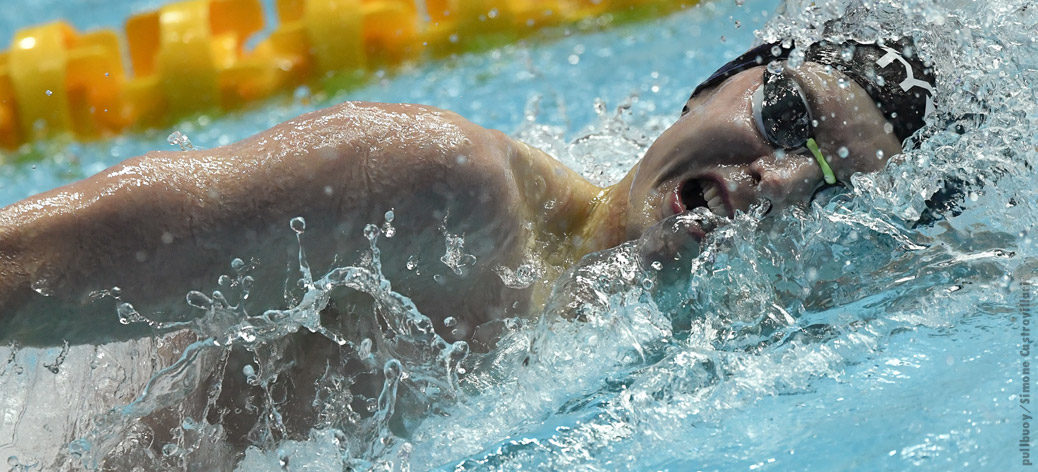Britain’s men have had a remarkable run of success in the medley relay since they became Peaty-powered back in 2014. England won gold at the Commonwealth Games and Britain the European title that year and finished 4th at the 2015 world championhsips, with James Guy pinch hitting on fly. The following year they secured another European gold and then Olympic silver in Rio, Guy now firmly bedded in on the third leg.
Silver again was taken at the 2017 world championships before silver for England the Commonwealth Games and a third straight European gold for Britain in 2018. Against this backdrop, hopes were high that the team would again mount the podium in Gwangju at the 2019 edition of the world championships.
Luke Greenbank, fresh from a bronze medal in the individual 200m backstroke, set the team off, posting a time close to his best, but touching a little behind the bulk of the field in 7th. Adam Peaty did his usual demolition job on the breastroke, recording a split of 57.20 despite smacking the takeover official on the head in his wind up for the start. That was almost a second faster than the next best split on that leg, and crucially was 1.45s ahead of the USA’s Andrew Wilson, clawing back all of the deficit from the first leg.
That sent James Guy in first, just ahead of new 100m fly world record holder Caeleb Dressel, but the positions were soon reversed with Dressel crushing a 49.28 split. Meanwhile Russia’s Andrei Minakov also snuck past Guy in the closing metres.
At the final takeover then, the US had a handy lead of around 1.2s over Russia and 1.4s over Britain’s Duncan Scott. With Nathan Adrian on the anchor, this seemed like a done deal for gold, with the interest now on whether Scott could overhaul Vlad Morozov who was in for Russia in the battle for silver.
But Scott had other ideas. He closed on Adrian on the first 50, but was still behind Morozov as the trio hit the wall. Adrian didn’t have the strongest of underwater phases, however, whereas Scott nailed his and suddenly the gap was significantly reduced.
And then came the moment of magic. Adrian was clearly tiring, the water seemingly turning to treacle around him, and this only served to energise Scott. He did the swimming equivalent of dropping a gear, raising his stroke rate noticeably as he moved past Adrian’s hips and accelerating through the 85m mark and into the lead. Then it was a dash for the wall, a touch and a guttural roar as gold was secured.
It was a stunning comeback. And then we heard the split. Scott had posted a jaw dropping 46.14 – the second fastest in history behind Jason Lezak’s LZR-powered 46.06 at the 2008 Olympics. It was a swim of the very highest calibre.

